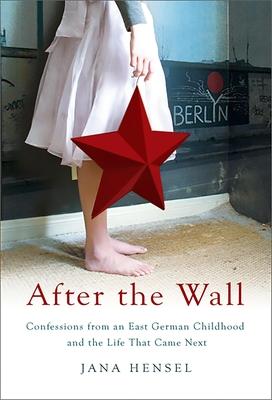Jane Hensel was thirteen on Nobember 9, 1989, the night the Berlin Well fell. In all the euphoria over German reunification, no one stopped to think what it would mean for Jana and her generation of East Germans. These were the kids of the seventies, who had grown up in the shadow of Communism with all its hokey comforts: the Young Pioneer youth groups, the cheerful Communist propaganda, and with the comforting knowledge that they lived in a Germany unblemished by an ugly Nazi past and a callous capitalist future. Suddenly East Germany disappeared, swallowed up by the West, and in its place was everything Jana and her friends had coveted for so long--designer clothes, Hollywood movies, supermarkets. Today they have all the right Western products and mannerisms. But, who are they?

After the Wall: Confessions from an East German Childhood and the Life That Came Next
Jane Hensel was thirteen on Nobember 9, 1989, the night the Berlin Well fell. In all the euphoria over German reunification, no one stopped to think what it would mean for Jana and her generation of East Germans. These were the kids of the seventies, who had grown up in the shadow of Communism with all its hokey comforts: the Young Pioneer youth groups, the cheerful Communist propaganda, and with the comforting knowledge that they lived in a Germany unblemished by an ugly Nazi past and a callous capitalist future. Suddenly East Germany disappeared, swallowed up by the West, and in its place was everything Jana and her friends had coveted for so long--designer clothes, Hollywood movies, supermarkets. Today they have all the right Western products and mannerisms. But, who are they?